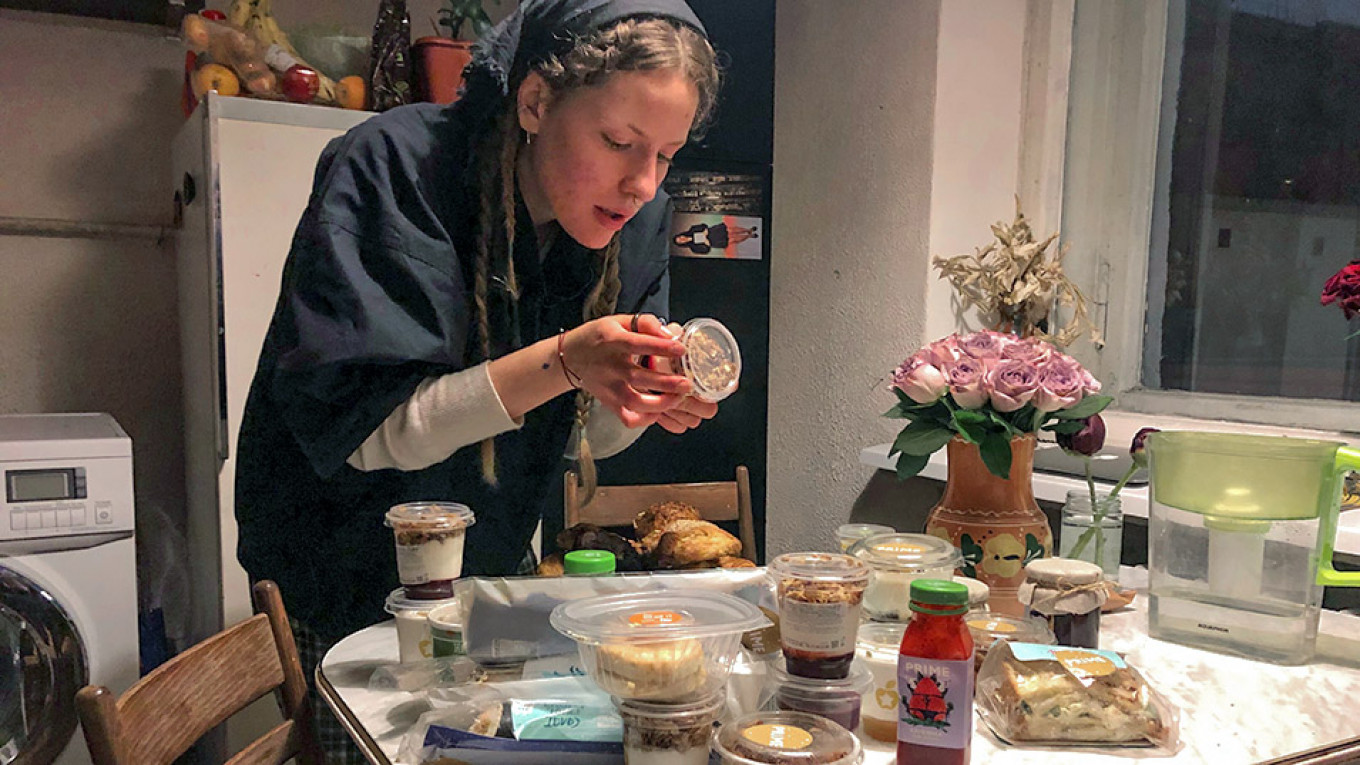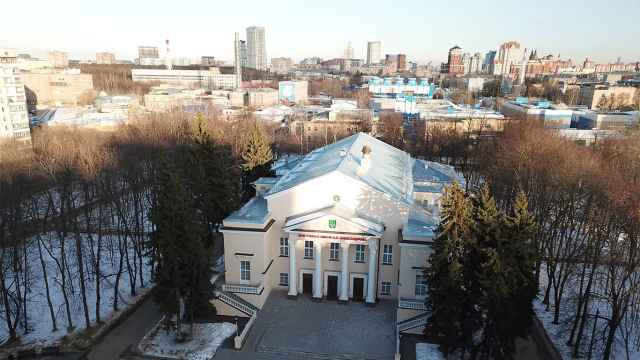Alina Afasyeva wears black leather gloves as she delicately picks through mountains of trash bags in Moscow’s elegant central Tverskaya neighborhood.
This is the fourth or fifth dumpster she’s visited tonight, but none of them have yielded results so far. Despite the early winter chill in the air, the smell is pungent — equal parts sweet and sour. It’s easy to imagine how much worse it gets in summer.
“There’s something here!” she exclaims.
She plucks out at least two dozen yogurt parfaits, pastries, wraps and fruit smoothies from a deli chain. Everything is fully packaged, except for the pastries — which haven’t touched anything in the bag except for some coffee grounds.
Afasyeva is one of Moscow’s dumpster divers, or “freegans,” a small but growing community of people in Russia’s capital who scavenge for leftover food that cafes and grocery stores throw out every day, but is perfectly edible and often still in its packaging.
“Freeganism,” a concept that originated in the United States, has slowly caught on in Russia as more people become aware of food waste. Russia throws away 17 million tons of food worth more than 1.6 trillion rubles ($25 billion) each year, according to a study by the Russian Association of Electronic Communications (RAEC) and the TIAR-Center consulting company.
Afasyeva said she first heard about it through a friend and decided to try it herself this spring.
“In Russia, people know about freeganism but it’s not seen positively,” she says. “When I did it and saw it with my own eyes, I was shocked. I saw the unification of young people, people who couldn't afford this food and other people who take advantage of this wonderful opportunity.”
Afasyeva now goes dumpster diving a few times every week as a way of embracing an anticapitalist, anticonsumerist lifestyle. She says there are many stereotypes and misconceptions about freeganism that aren’t true — namely, that freegans are unclean or that the food is unsafe to eat.
“I do this in principle, just knowing that I can get food for free and I only have to pay with my time,” she says. “I find it useful in terms of rethinking consumption so it’s healthier and more mindful.”
Afasyeva has been working in a flower shop and living with her parents since graduating from university with a degree in literature. Her parents sometimes eat the food she brings home.

Most nights, no one bothers her, she says, as she knows when each cafe takes out its trash and only goes out in darkness so she’s less likely to be seen. With a flashlight and a video camera, however, she’s a bit more conspicuous and is confronted a few times by security guards.
At the end of the night, the total retail value of the food she’s collected is about 4,500 rubles ($70). If she can’t eat all the food she finds, she gives the rest to friends or the homeless.
For Afasyeva, dumpster diving is an act of protest against restaurants’ and grocery stores’ food disposal policies, which she calls “shameful.” She says she’d like to see an organized, humane system where leftover food is made available at the end of each day to those who need it — but for now, this will have to do.
“There’s a tendency among Russian youth in general to think about the consequences of our actions,” she says. “I can’t say this represents all of Russia, and I think it might be like this because we’re in the capital, but I think it’s growing.”
A Message from The Moscow Times:
Dear readers,
We are facing unprecedented challenges. Russia's Prosecutor General's Office has designated The Moscow Times as an "undesirable" organization, criminalizing our work and putting our staff at risk of prosecution. This follows our earlier unjust labeling as a "foreign agent."
These actions are direct attempts to silence independent journalism in Russia. The authorities claim our work "discredits the decisions of the Russian leadership." We see things differently: we strive to provide accurate, unbiased reporting on Russia.
We, the journalists of The Moscow Times, refuse to be silenced. But to continue our work, we need your help.
Your support, no matter how small, makes a world of difference. If you can, please support us monthly starting from just $2. It's quick to set up, and every contribution makes a significant impact.
By supporting The Moscow Times, you're defending open, independent journalism in the face of repression. Thank you for standing with us.
Remind me later.







